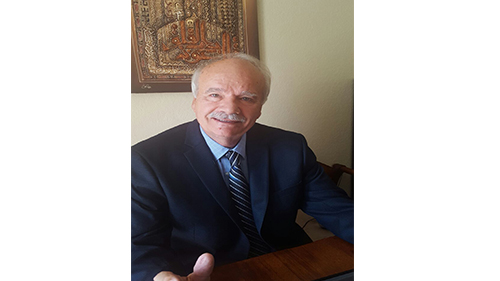24 September 2019
Lecture on The History of Coffee and Its Developments, By Dr. Mohamed Mofako at Al-Khalifiyah Library


Bahrain’s Authority for Culture & Antiquities’ events continue to enrich the local cultural scene through a number of activities and lectures, such as the one held at the Al Khalifiyah Library, in Muharraq. On 25 Septembers 2019 a lecture on “Coffee from Yemen to Bosnia: Culture & Identity”, was presented by Dr. Mohamed Mofako, The Director of the Institute of Oriental Studies in Pristina, Kosovo, in the presence if H.E Shaikha Hala Bint Mohammed Al Khalifa, Director-General of Culture and Arts at the Bahrain Authority for Culture & Antiquities, academicians and enthusiasts.
The lecture reviewed on the history of Coffee and how it arrived from Ethiopia to Yemen during the 15th century, appearing nearly at the same time as tea and tobacco. It continued its route across Egypt and Syria to Europe from the16th to the 17th century, having its own impact on the economy, society and culture.
Dr. Mohamed Mofako, the lecturer, explained how this new ‘ drink’, ways of presenting it and its consumption led to controversy among religious scholars ( fakihs), scientists and poets; some welcomed the new product and appreciated it, others, however refused, opposed its distribution and went even to prohibit it as irreligious. These different opinions and religious debate with regard to coffee drinking, which lasted for almost two centuries, produced an extensive literary and religious theories written in Arabic extending from Yemen to reach Bosnia, resulting in a dozen of theoretical and scholastic approaches and proofs which opened the door for coffee drinking, without imitating those who drink wine, ( the word ‘coffee’ is one of nicknames of wines in the Arab culture). This describes formal opposition to coffee in the Islamic world from a religious-legal point of view, and includes az-Zabīdī’s response to the opponents of coffee drinking. It is a document worthy of study not just due to its prominent author but due to the date of its content, as it was written in 1758, approximately two centuries after most historians attribute the death of the coffee debate in Islam8. This manuscript proves otherwise, as it indicates that the argument over whether or not coffee was legally prohibited in Islam was still going strong well into the eighteenth century. It is also noteworthy given that it was written at a time when European influence was not strongly felt in the Islamic world as it was in later centuries, and thus is an entirely self-contained document by someone who lived in Yemen during a portion of the coffee trade heyday there.
The lecturer also added that the widespread of coffee led to new cultural revolution in society, given the immense appearance of coffeehouses and coffee shops in major big cities, such as Damascus, Cairo, Sarajevo and London. However, these places were no longer only used to drink coffee as a hospitality house tradition, but they’ve become a social gathering venues where friends can meet, interact and engage in public affairs of the day. Thus, coffee shops became the principal destination where most people go to exchange news, discuss intellectual and political affairs, and a favorite meeting place for writers and intellectuals to show their creative works and exhibit their latest poetic or artistic productions.
In the 16th century, Dr. Mohamed Mofako said, the new coffee shops became as ‘ cultural centers’ welcoming and attracting customers by playing music and dance performances, transforming their functionality into new seasonal theaters ( especially during the holy month of Ramadan), presenting critical political and social theatrical pieces’ performances through the puppets shadow technique ( clowns and Barbur). Later, they also hosted the new theater trends that had begun to spread in the Middle east at the end of 19th century, before the emergence of the institutional conventional theaters at the beginning of the 20th century.
In addition, coffee-drinking has become part of the daily life activities in many cultures and societies; it is considered a symbol of hospitability in GCC countries, intimacy, reconciliation and tolerance in other countries, such as Jordan, while Turkey succeeded in 2014 to register the “ Turkish Coffee” as a UNESCO World Cultural Heritage. Moreover, given the relation between coffee and the cultural identity of peoples and civilizations, it has also reflected the political tensions that happened in other parts of the world, such as the ones between Greece and Turkey, Bosnia and Herzegovina.







